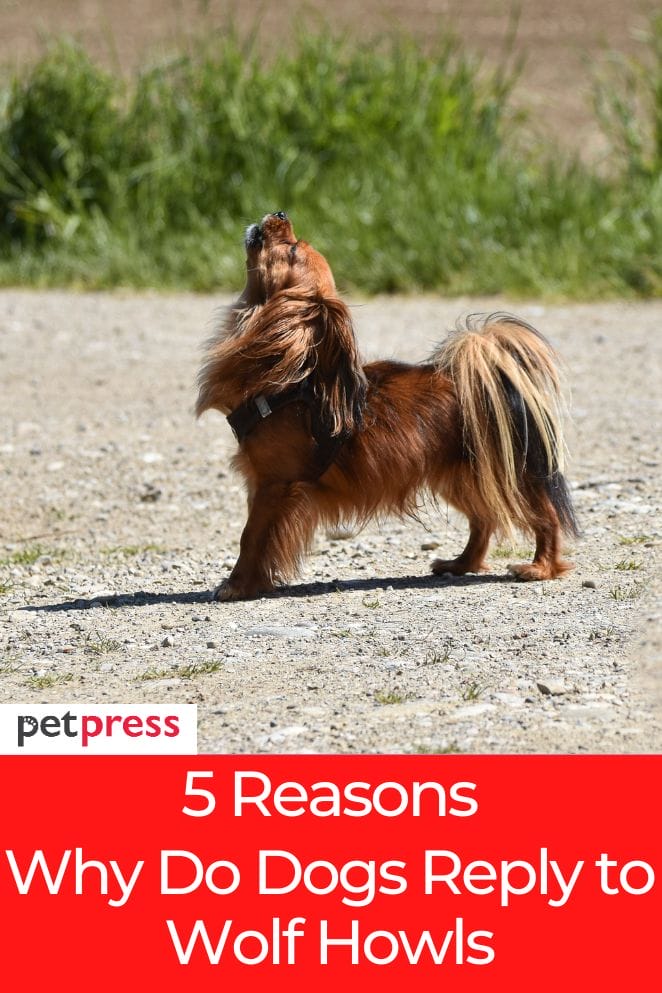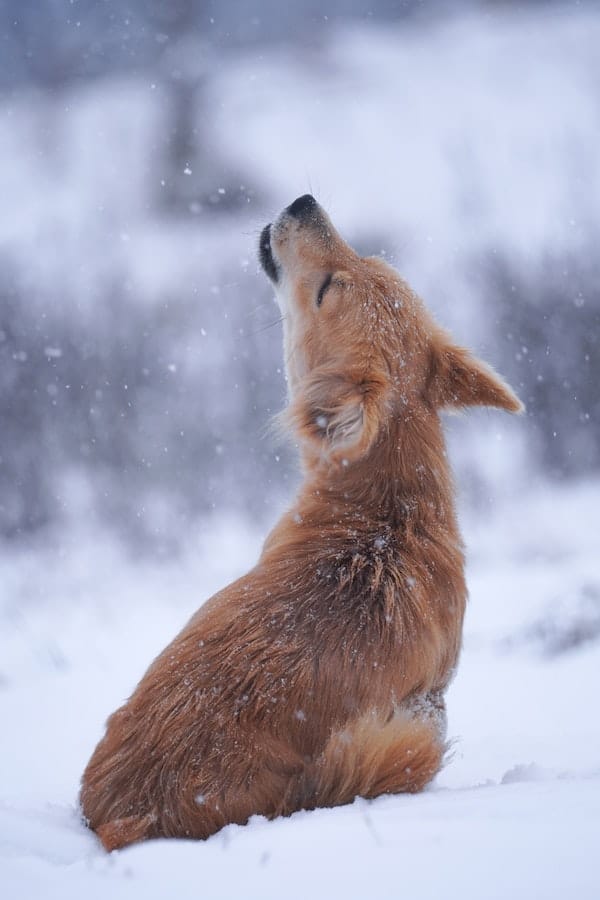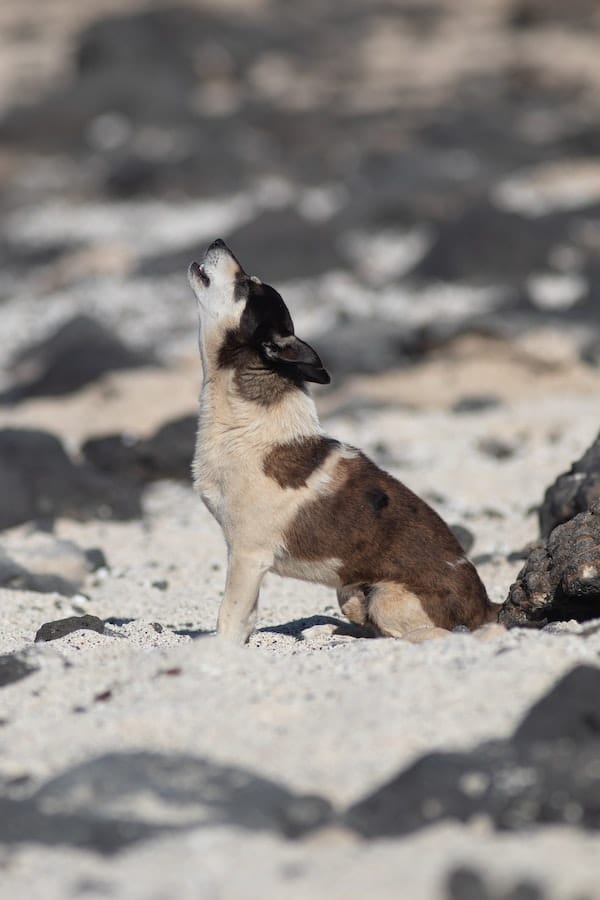
Dogs have an interesting relationship with wolves, their wild ancestors.
Wolves are known to howl in loud, distinct ways as a way of communicating and dogs often respond to these calls by barking or howling back.
This behavior has been fascinating for researchers for many years, who have been trying to understand why dogs would feel the need to reply when hearing a wolf’s howl.
This article will explore the fascinating reasons why dogs may be compelled to respond to wolf howls.
Dogs and Wolves: A Long History

Dogs and wolves are closely related species, with dogs being descended from wolves.
This relationship goes back thousands of years, as archaeologists have found evidence that wolves were domesticated by humans as early as 15,000 years ago.
The evolution of the domestic dog
The domestication of wolves into the modern-day dog was a long and complex process, with many different stages.
The first step involved humans selecting wolves that were more docile and less aggressive than their wild counterparts.
This selection created a population of animals with a much lower fear response to humans, which allowed them to be socialized easier.
Over time, animals became accustomed to living in close proximity to humans and eventually bred with each other, leading to the development of distinct dog breeds.
Dog’s unique ability to communicate with wolves
One of the most fascinating aspects of canine behavior is their unique ability to communicate with wolves.
Although dogs and wolves do not understand each other’s language, they are able to pick up on social cues from one another.
Dogs have a special type of vocalization known as “wolf howl”, which can be heard by both species.
This wolf howl is composed of multiple low-frequency notes that can travel over large distances, allowing wolves and dogs to communicate with each other.
Why do dogs reply to wolf howls?

There are several theories as to why dogs might reply to wolf howls. These include:
The primal instinct theory
The primal instinct theory suggests that dogs respond to wolf howls out of a deep-rooted instinct.
This behavior is thought to be an ancient form of communication between wolves and their canine descendants, passed down through generations.
As a result, many dogs naturally respond to wolf howls with barks and yips as if they were trying to join in an ongoing conversation.
The reflexive response theory
The reflexive response theory suggests that dogs respond to wolf howls as a form of self-preservation.
Dogs may perceive the call of a wolf as a warning, prompting them to bark or howl back in order to signal their presence and avoid any potential danger.
This theory is supported by the fact that dogs are more likely to respond to wolf howls when they feel threatened or uneasy.
The familiarity theory
The familiarity theory suggests that, over time, wolves and dogs have developed a shared understanding of each other’s calls.
Dogs may respond to wolf howls out of recognition, as if they understand the message being conveyed and are replying in kind.
This theory is based on the idea that wolves may identify certain sounds and tones as belonging to a fellow wolf, which could explain why dogs often seem to recognize the howl of another dog or wolf.
Pack mentality theory
The pack mentality theory suggests that dogs may respond to wolf howls out of a sense of solidarity with their canine ancestors.
Dogs may interpret the howls as a call for help or camaraderie, prompting them to bark back in recognition and support.
This could explain why some dogs seem to be particularly eager to respond when a wolf howl is heard as if they are trying to join the pack.
Territorial marking theory
The territorial marking theory suggests that dogs may respond to wolf howls as a form of territorial marking.
By barking or howling back, dogs are able to stake their claim and mark their territory.
This can prevent other wolves from entering the area, thus preventing any potential threats or conflicts.
Conclusion
Dogs have a unique ability to communicate with wolves through the use of wolf howls.
There are several theories as to why dogs might respond in this way, including the primal instinct theory, the reflexive theory, the familiarity theory, the pack mentality theory the territorial marking theory.
Ultimately, it is difficult to pinpoint the exact why dogs reply to wolf howls, as it could be a combination of several different factors.
Nevertheless, this behavior provides insight into the complex relationship between wolves and their canine descendants.
- Does Cat Litter Melt Ice? The Complete Guide to Winter Safety - January 30, 2026
- Happy Tail Dogs: Understanding This Common Canine Condition - January 29, 2026
- How Cold Can Outdoor Cats Handle? Feline Winter Safety - January 27, 2026


GIPHY App Key not set. Please check settings